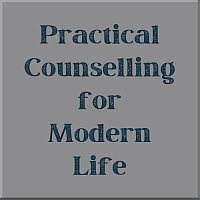What about Depression?
The word ‘depressed’ is used frequently. For those battling the awful illness that is depression - its affects can be truly debilitating.
Anyone trying to manage this condition will have an experience that varies depending on the type of depression, its severity and the individual themselves. This is why it can be hard to diagnose initially.
Whilst these challenges may feel insurmountable, we all have resources that therapeutic work can tap into in order to adopt new coping strategies and begin the journey to feeling better and stronger.
- Low mood, loss of interest and pleasure
- Agitation, frustration or irritation
- 'Avoidant' or 'numb' feeling or perhaps isolation
- Often a weakened voice
- Feelings of anger, shame, guilt or despair
- Anxiety
- Low self-esteem - in the extreme, a feeling of worthlessness.
Physical symptoms can include;
- 'System Issues' - Digestive, Respiratory, Muscular, etc
- Pains such as headaches, muscle, joint pain and/or chest pain.
- Fatigue is common and can be debilitating, even after a long sleep.
- Affected sleep; both sleeping a great deal (hypersomnia) or experiencing insomnia.
- Dry or affected skin
- Affected sex drive
- A feeling of sluggishness and lack of coordination
- Affected appetite; eating too much or too little
Mild – You can continue with your daily life despite feeling low and empty. Despite the word ‘mild’, this can feel unsurmountable.
Moderate – You find that daily activities are impaired, affecting work and home life. Often people find they externally demonstrate behaviours and body language that supports the diagnosis.
Major/Severe – Pervasive low. Uninterested in daily activities. Often disabling in nature. You may feel emotionless, indifferent and withdrawn. Weight gain or loss is common. People report feeling sluggish, feeling extremely fatigued and struggle to formulate thoughts or words.
There are other depressive illnesses such as bipolar, postnatal/prenatal depression and seasonal affective disorder (SAD).
Please always consult your GP as a first point of contact if you are concerned that you are experiencing these symptoms. Counselling or psychotherapy are powerful in supporting the management of depressive illness. However, it should be noted that counselling would form part of a treatment plan that includes GP support.


